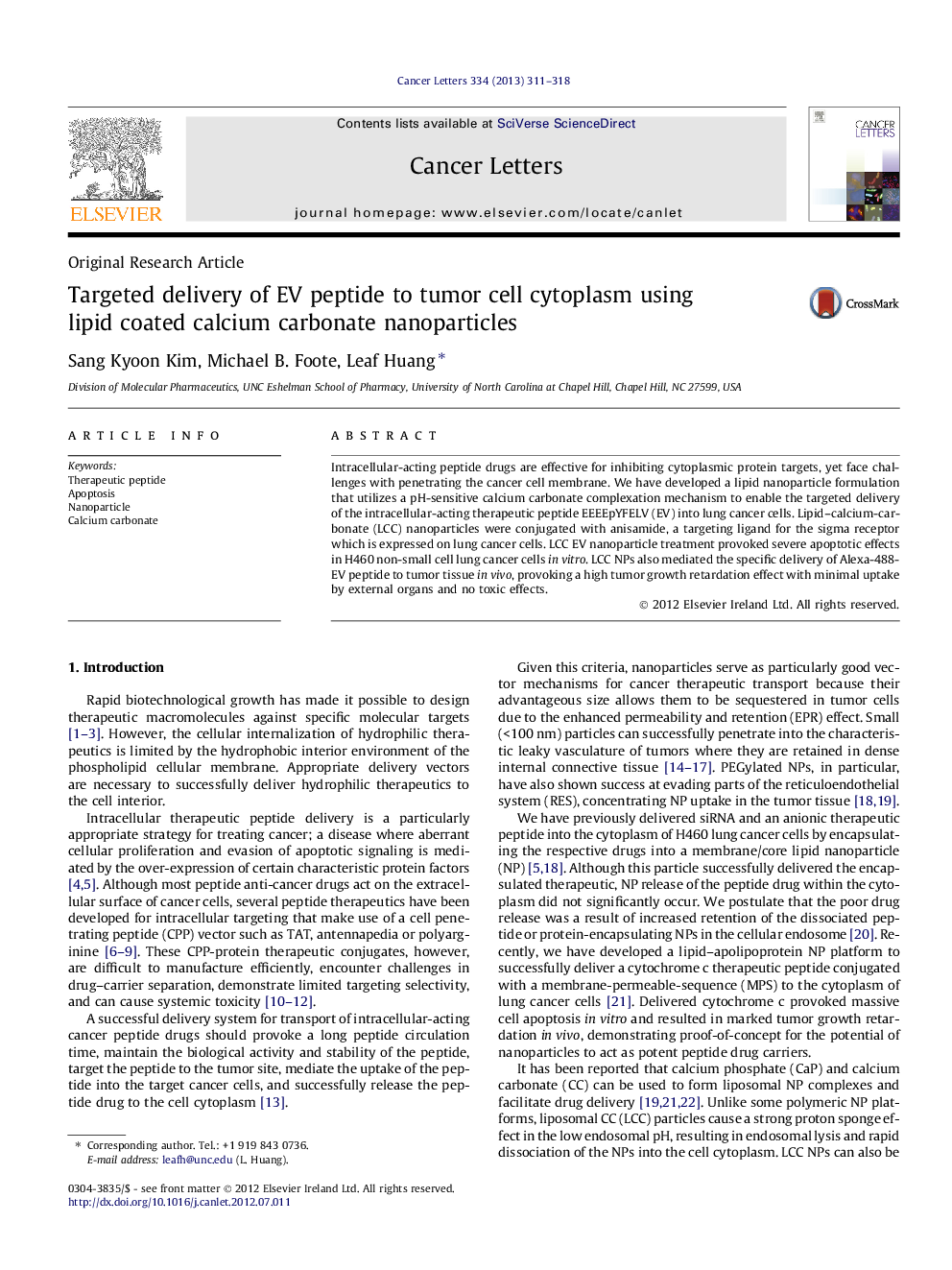| Article ID | Journal | Published Year | Pages | File Type |
|---|---|---|---|---|
| 2116306 | Cancer Letters | 2013 | 8 Pages |
Intracellular-acting peptide drugs are effective for inhibiting cytoplasmic protein targets, yet face challenges with penetrating the cancer cell membrane. We have developed a lipid nanoparticle formulation that utilizes a pH-sensitive calcium carbonate complexation mechanism to enable the targeted delivery of the intracellular-acting therapeutic peptide EEEEpYFELV (EV) into lung cancer cells. Lipid–calcium-carbonate (LCC) nanoparticles were conjugated with anisamide, a targeting ligand for the sigma receptor which is expressed on lung cancer cells. LCC EV nanoparticle treatment provoked severe apoptotic effects in H460 non-small cell lung cancer cells in vitro. LCC NPs also mediated the specific delivery of Alexa-488-EV peptide to tumor tissue in vivo, provoking a high tumor growth retardation effect with minimal uptake by external organs and no toxic effects.
► LCC NP successfully mediates pH-sensitive release of attached EV therapeutic peptide. ► EV peptide in LCC NP treatment provoked a 40% reduction in H460 cell viability. ► LCC NPs showed high in vivo tumor specificity with no significant systemic toxicity. ► EV peptide in LCC NP treatment provoked massive H460 tumor growth retardation in vivo.
